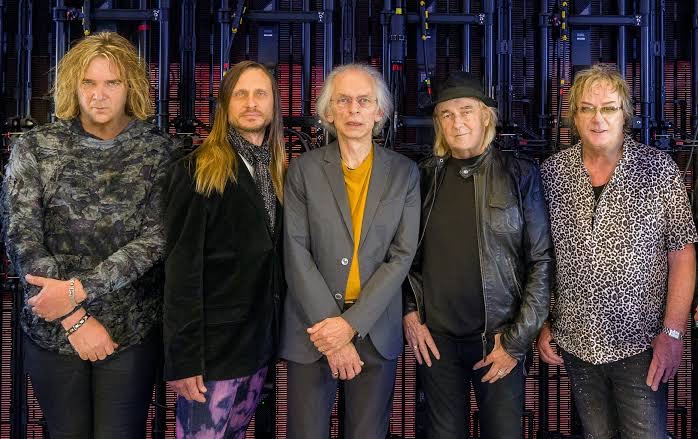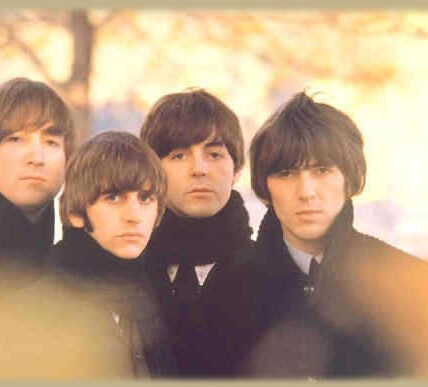The British progressive rock band Yes has been a cornerstone of the genre since its formation in 1968. Known for their intricate compositions, virtuosic musicianship, and a kaleidoscope of musical influences, the band has cultivated a rich legacy that spans decades. In a unique interview series, band members have shared their favorite songs, personal anecdotes, and the memories associated with their music. This article delves into the highlights of this series, offering insights into the minds of the musicians who shaped Yes.
## A Journey Through Time: The Early Years
### The Formation of Yes
Yes was founded by Jon Anderson and Chris Squire, who were soon joined by guitarist Peter Banks, keyboardist Tony Kaye, and drummer Bill Bruford. This initial lineup crafted their self-titled debut album in 1969, which introduced their signature sound: a blend of rock, jazz, and classical influences. During interviews, Anderson often reminisces about the excitement of those early days, highlighting how songs like “Sweetness” and “Every Little Thing” were born from a spontaneous, collaborative spirit.
### Defining Moments: “Fragile” and “Close to the Edge”
The release of **”Fragile”** in 1971 marked a significant turning point for Yes. Each member contributed a solo piece, allowing them to showcase their individual talents. For instance, Squire recalls how “The Fish (Schindleria Praematurus)” was not only a nod to his love of bass guitar but also a reflection of the band’s collective energy. This album’s success laid the groundwork for **”Close to the Edge,”** a masterclass in progressive rock that many band members consider a pinnacle of their career.
## Favorite Songs and Their Significance
### Jon Anderson: A Vocalist’s Perspective
Jon Anderson’s favorite songs often reflect his spiritual and philosophical outlook. He cites **”And You and I”** as a profound piece that captures the essence of love and interconnectedness. In interviews, he describes the creative process behind the song, emphasizing the blend of lyrical imagery and musical dynamics that elevate its emotional impact.
### Chris Squire: The Bass Guru
Chris Squire’s favorite track is frequently **”Roundabout,”** a staple of Yes’s live performances. He fondly recalls the moment the song was crafted, particularly its iconic bass line. Squire explains how the song encapsulates the band’s ability to fuse complex arrangements with accessible melodies, making it a fan favorite and a defining anthem of the progressive rock era.
### Steve Howe: A Guitarist’s Delight
Guitarist Steve Howe often highlights **”The Revealing Science of God (Dance of the Dawn)”** as a personal favorite. He appreciates its ambitious structure and the way it challenges traditional rock conventions. Howe’s memories of performing this piece live evoke a sense of nostalgia, as he recalls the band’s chemistry on stage and the audience’s reaction to the intricate guitar work.
## Personal Memories and Anecdotes
### The Art of Collaboration
One recurring theme in the interview series is the collaborative spirit that defines Yes. Members frequently share anecdotes about the writing sessions that birthed some of their most beloved songs. Anderson recalls long nights spent in the studio, experimenting with sounds and ideas, while Bruford mentions the importance of spontaneity in their creative process. These stories highlight the synergy between the musicians and their shared passion for pushing musical boundaries.
### Touring Experiences
The band’s extensive touring history provides a wealth of memorable moments. During the interview series, various members reflect on their experiences on the road. Alan White, the drummer, shares a humorous tale about a mishap during a performance in Japan, illustrating the unpredictability of live music. These anecdotes not only entertain but also emphasize the camaraderie among the band members, forged through years of touring together.
## Legacy and Influence
### Impact on Progressive Rock
Yes has significantly influenced the progressive rock genre, inspiring countless bands and musicians. The interview series often touches on how younger artists cite Yes as a pivotal influence in their work. Members express pride in their legacy, recognizing that their music continues to resonate with new generations. They reflect on the evolution of the genre and how Yes has remained relevant by embracing change while staying true to their roots.
### The Enduring Fanbase
The loyalty of Yes fans is another focal point in the interviews. Members frequently share heartwarming stories about meeting fans and the impact their music has had on listeners’ lives. Anderson recalls receiving letters from fans who found solace and inspiration in Yes’s music, reinforcing the idea that their songs transcend mere entertainment; they serve as a soundtrack to personal journeys.
## Conclusion: A Tapestry of Sound and Memory
The “Yes Members’ Favorite Songs and Memories” interview series offers an intimate glimpse into the lives of the musicians behind the music. Through their favorite songs and personal anecdotes, Yes members reflect on a rich tapestry of experiences that define their journey. Their shared stories highlight not only the creativity and collaboration that characterize the band but also the profound impact their music has had on fans and the broader musical landscape. As Yes continues to perform and create, their legacy endures, a testament to the power of music to connect, inspire, and evoke cherished memories.




